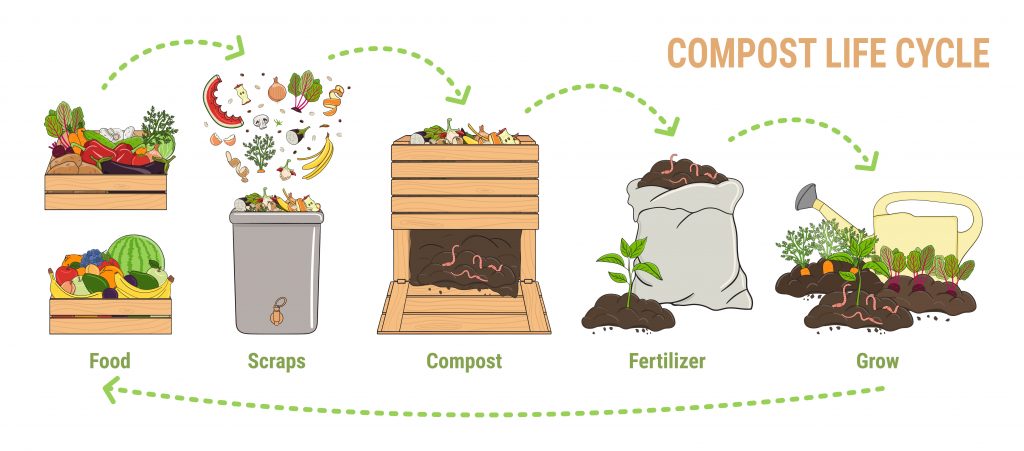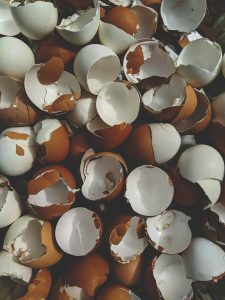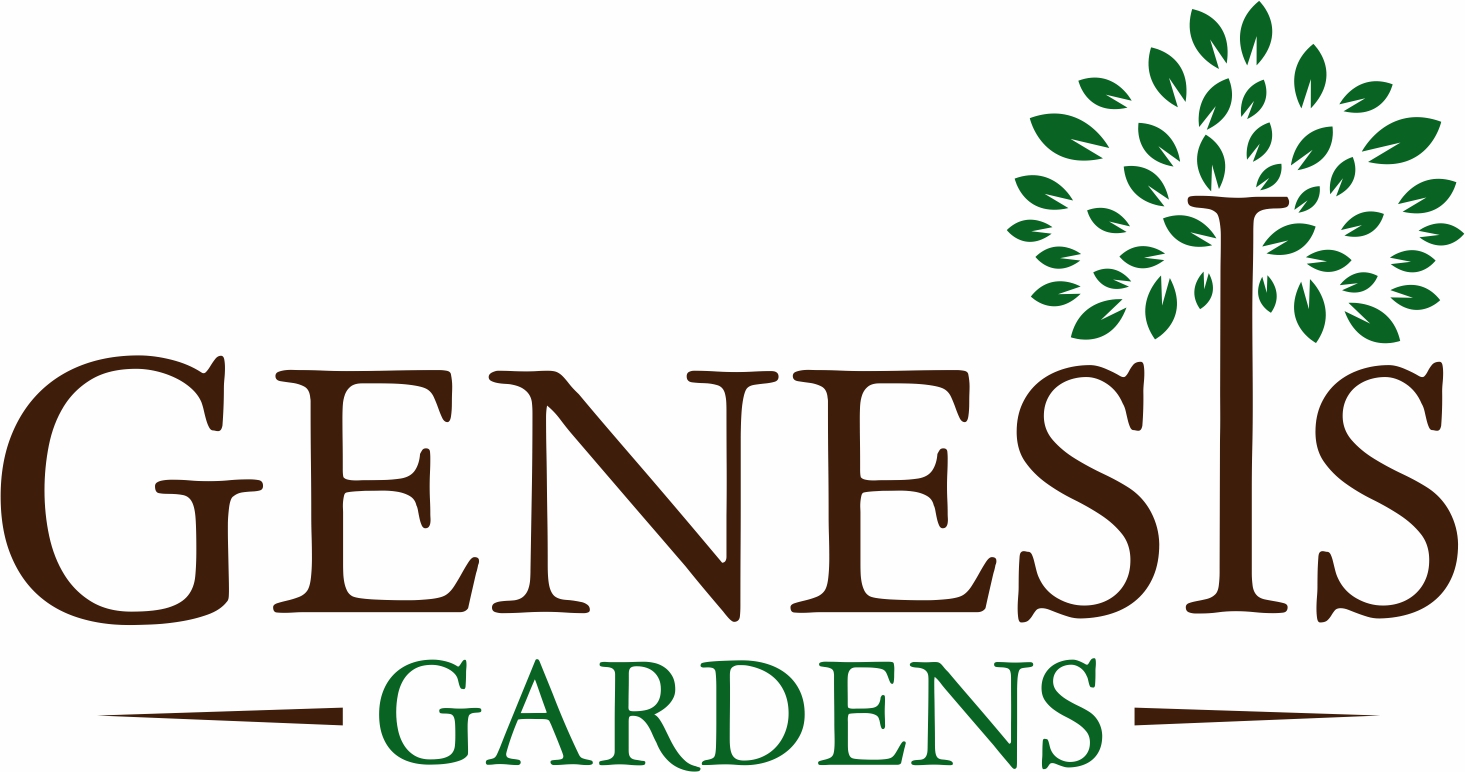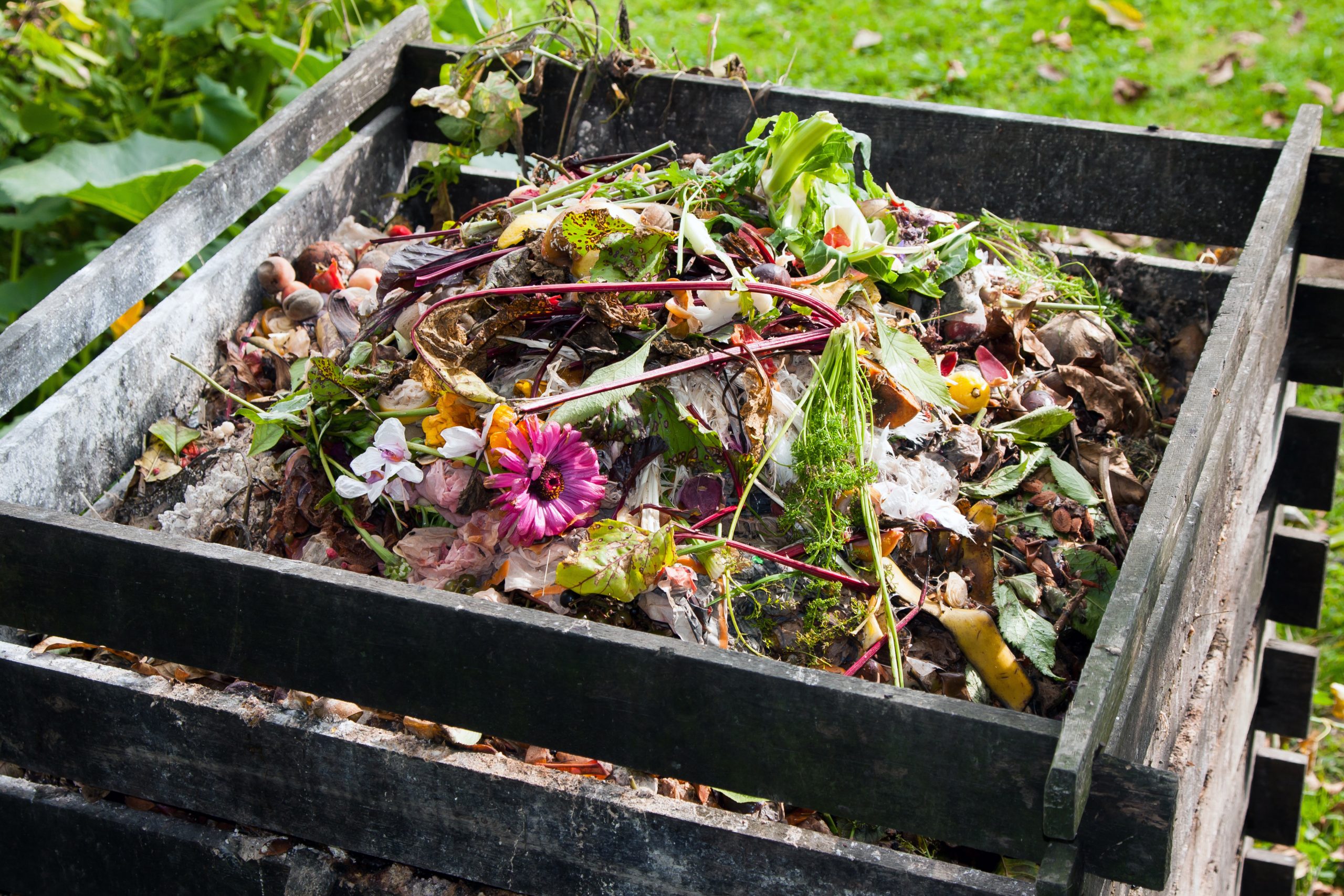At Genesis Gardens, we’re passionate about creating beautiful, healthy gardens whilst embracing sustainable practices. One of our favourite ways to do this is through composting, a simple process that transforms kitchen scraps and garden waste into “black gold” for your soil.
Why Compost?
Composting offers a multitude of benefits for you and the environment:
Reduces landfill waste: Our landfills are overflowing, and food scraps make up a significant portion. Composting diverts this waste, helping to reduce our environmental impact. Even if your council does collect food waste, composting is even better because you get the direct benefit to (literally!) plough back into your garden.
Creates nutrient-rich soil: Composted materials are packed with essential nutrients that plants crave, promoting healthy growth and vibrant blooms.
Improves soil structure: Compost helps retain moisture, improves drainage and encourages healthy microbial activity, leading to a thriving ecosystem in your garden.
Saves money: By creating your own fertiliser and earth, you can reduce reliance on shop-bought products and save money in the long run. Home composting also means you avoid the hassle of lugging heavy bags of earth home.
Ready to get started?
Composting doesn’t require fancy equipment or extensive knowledge. Here’s a beginner-friendly guide to get you going:
Choosing Your Method:
There are two main composting methods for beginners:
Bin Composting: This is a popular option for gardens of all sizes. You can purchase a dedicated compost bin, build a simple wooden structure or even use a large bin with ventilation holes.
Vermicomposting: This method involves using worms to break down the materials. It’s ideal for smaller spaces and generates a nutrient-rich liquid fertiliser called ‘worm tea’ alongside the compost. Vermicomposting even works if you only have a balcony or yard area.

What should you add to your compost bin?
Brown materials (dry, carbon-rich):
- Shredded cardboard (egg boxes, toilet paper rolls)
- Leaves
- Twigs and straw
- Wood chippings (untreated)
Green materials (wet, nitrogen-rich):
- Tea bags and coffee grounds

- Fruit and vegetable peelings (not citrus peels initially)
- Eggshells (crushed)
- Grass cuttings (not in large quantities)
What NOT to add:
- Dairy products
- Meat and fish scraps
- Diseased plants
- Oil and grease
- Chemicals
Maintaining your compost pile:
Balance: Aim for a 2:1 ratio of brown to green materials. This ensures proper decomposition and prevents the pile from becoming too wet or odorous.
Moisture: Keep your compost pile damp, like a wrung-out sponge. Add water if it feels dry, and turn the pile regularly with a fork to aerate it.
Location: Choose a well-drained, shaded location for your compost bin.
Using Your “Black Gold”:
Once your compost has matured (usually within 6-12 months), it will have a dark, crumbly texture and an earthy smell. Use it to:
Amend or improve your soil: Mix compost into your planting beds before sowing seeds or planting seedlings.
Top dress established plants: Spread a thin layer of your nutrient-rich compost around the base of your plants to improve soil fertility and moisture retention.
Potting mix: Blend compost with other ingredients like soil and grit to create a nutrient-rich potting mix for container plants.
Composting is a rewarding journey that benefits your garden, the environment and even your wallet. By following our simple steps, you can turn your kitchen scraps into a valuable resource that nourishes your plants and helps your garden flourish.
At Genesis Gardens, we’re always happy to help! If you have any questions about composting or need assistance creating a sustainable garden, please contact us. Together, let’s grow a greener future, one compost bin at a time.

